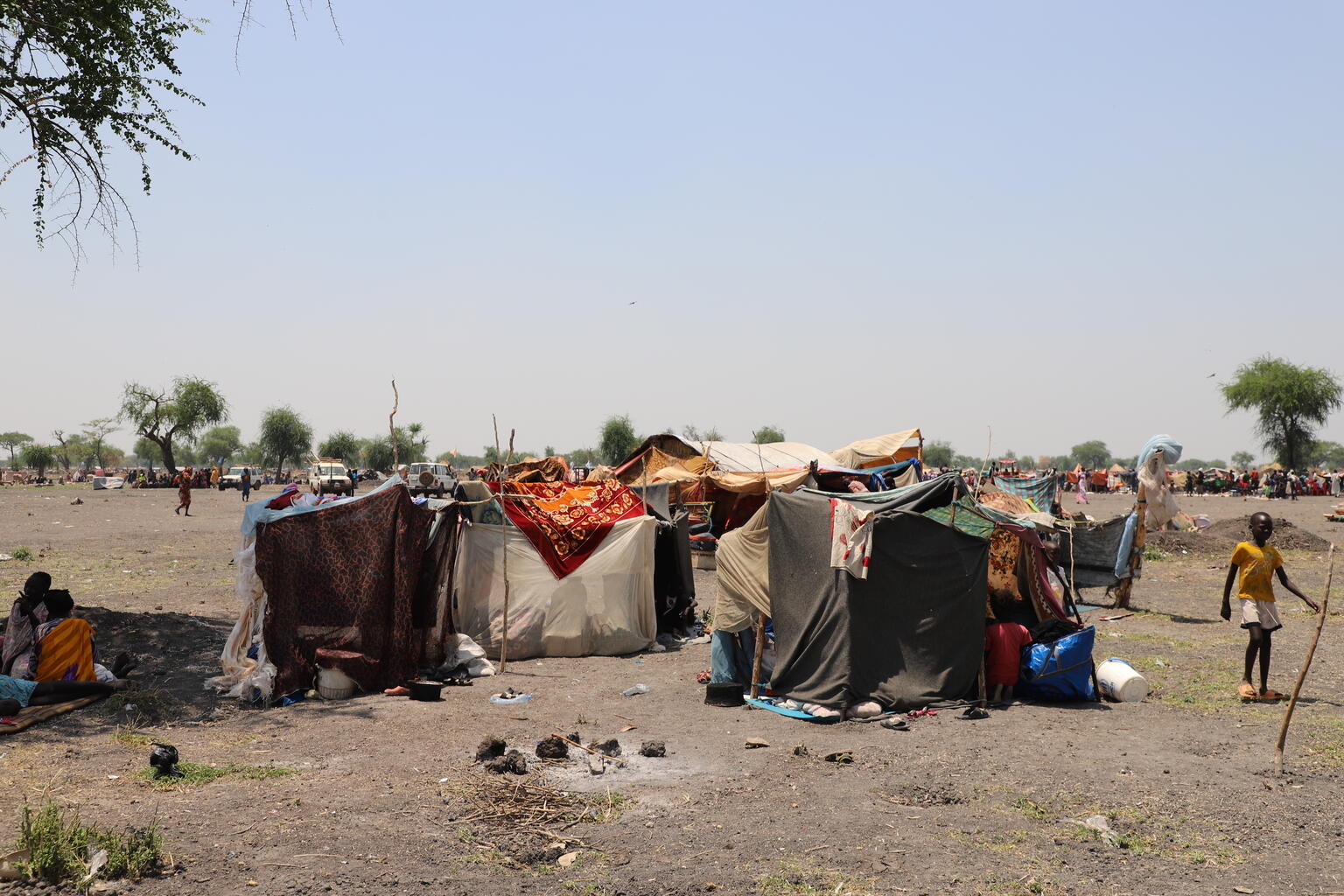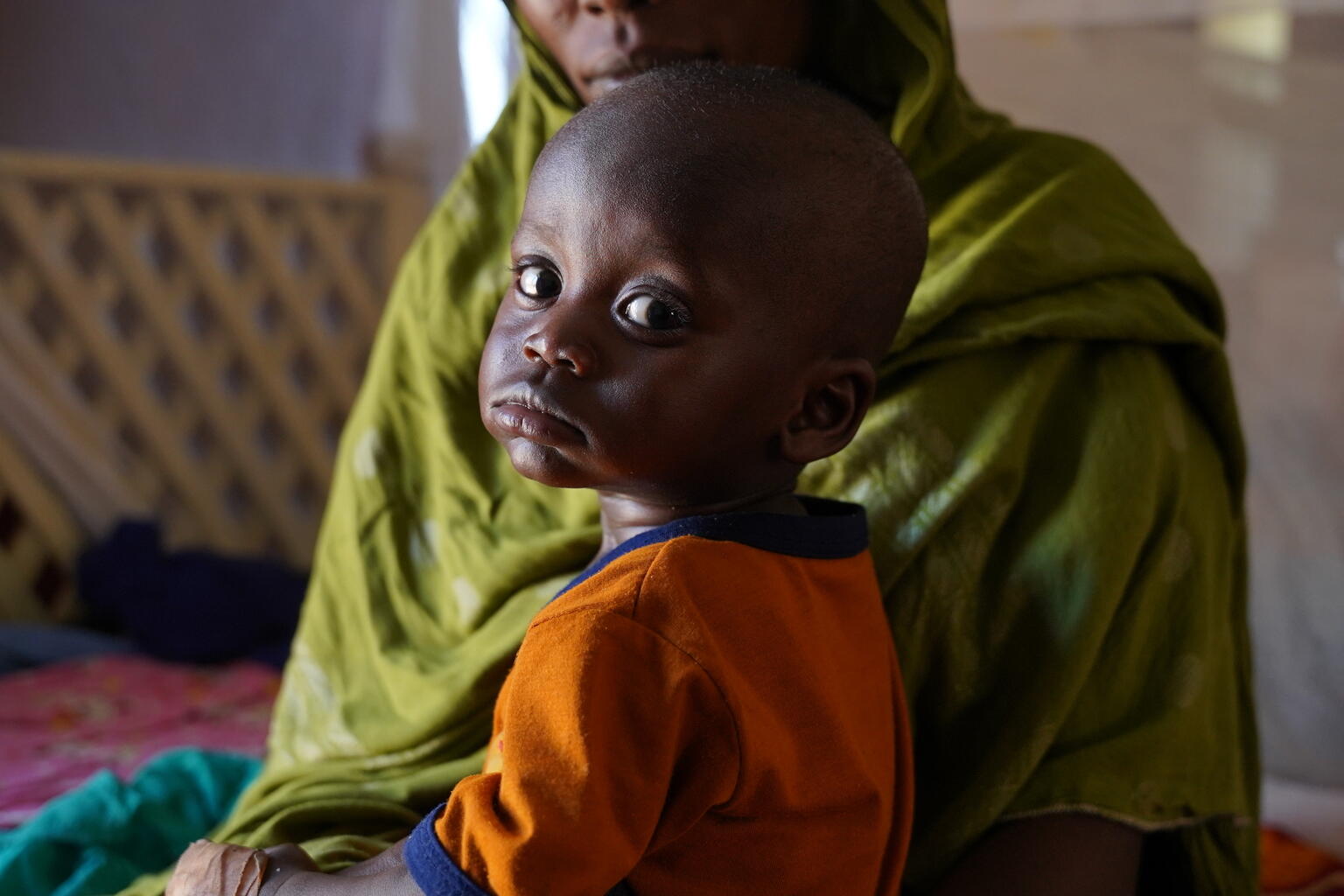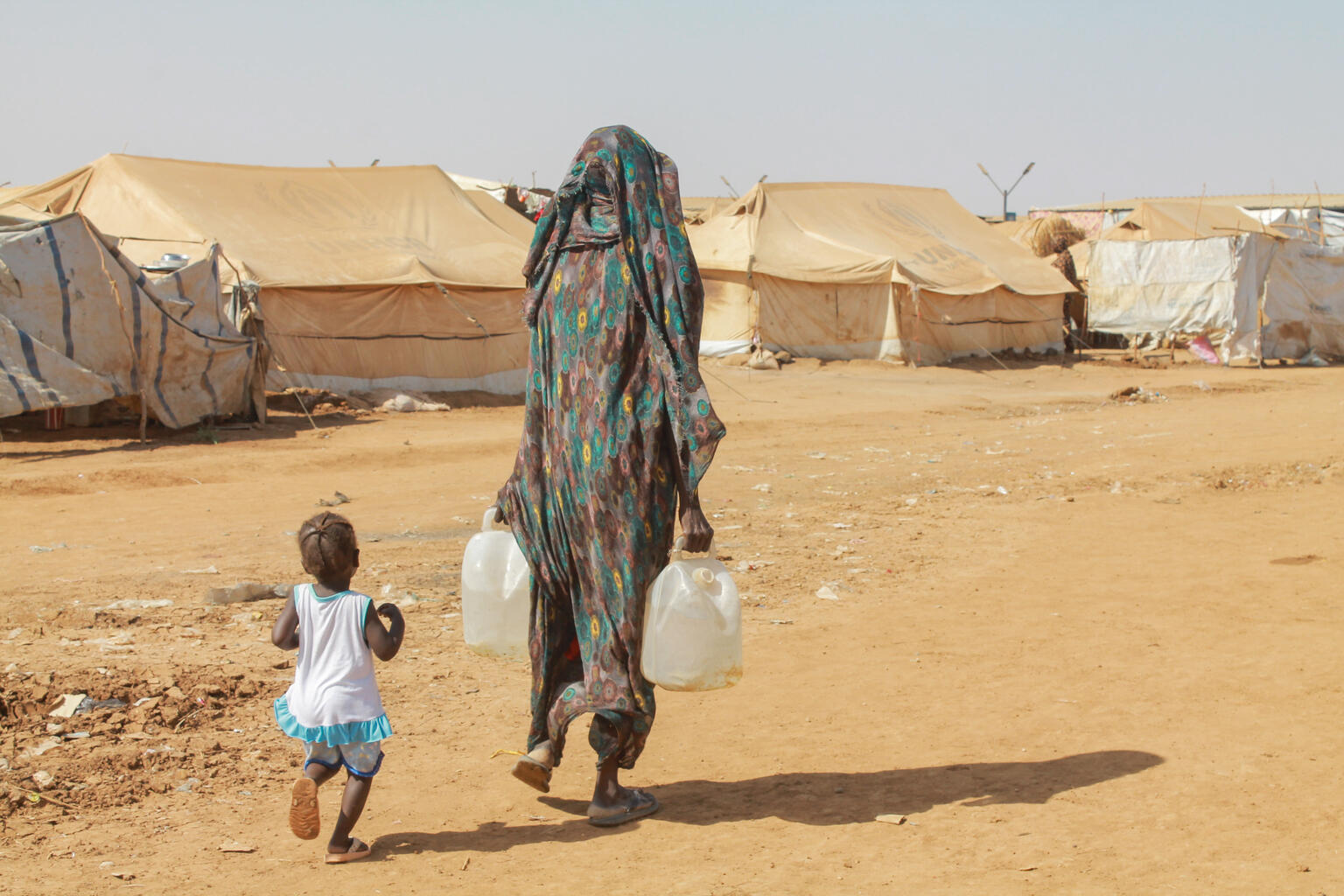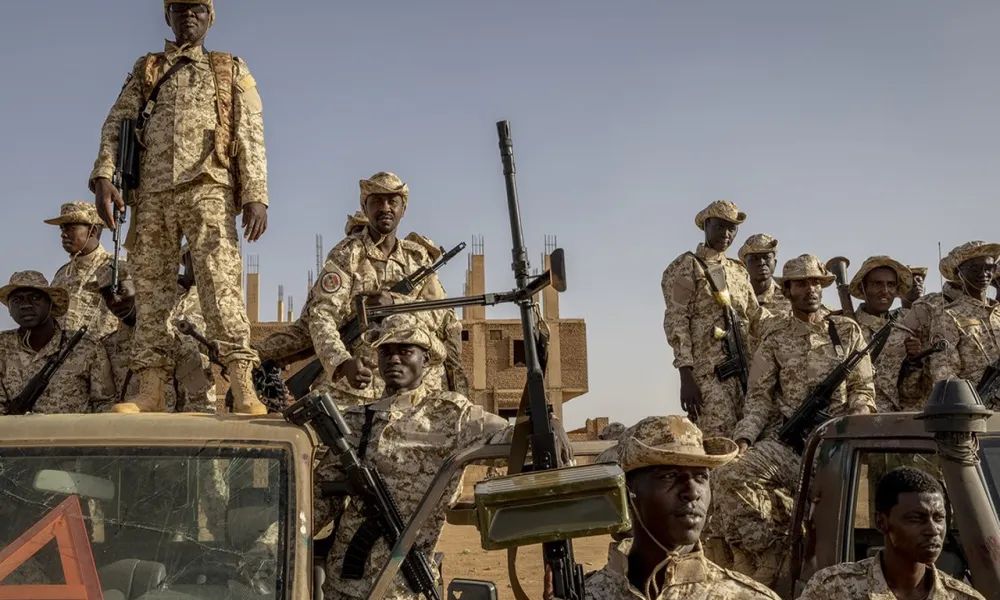While the world’s eyes are turned to the bloodbath unfolding in Gaza, and the war in Ukraine now in its third year, the famine and slaughter ravaging Sudan remains highly underreported.
Media attention, particularly in Cyprus, has been scant over the civil war devastating the Sudanese population which the US declared as a genocide in January this year.
UNHCR data shows individuals from Sudan mark the second highest number of arrivals in Cyprus after Syrian nationals for the first six months of 2025. Despite this, news coverage of the war in Greek Cypriot media outlets is sparse.
Politis spoke to two Sudanese asylum-seekers who escaped the war-torn country, and were smuggled to Cyprus as they sought to escape the bloodbath, famine and violence ravaging Sudan. Their names have been changed for security reasons.

Amira has been in Kofinou for just under a year. A powerhouse in her native Sudan who describes herself as a feminist that fought “loudly for the truth” and paid dearly for it by being harassed, demoted and undermined by males “that dominate everything,” she strikes a calm figure with her soft voice and kind eyes.
Samir on the other hand, is bursting with young energy and ambitions for the future. His eyes glisten when he says he misses his parents that he hasn’t seen for two years, after they wanted to ensure the children got out of Sudan safe.
Eating charcoal to survive
The war in Sudan began in April 2023 when a fight for power broke out between the Sudanese army and the Rapid Support Forces (RSF) paramilitary group. Since then, around 13 million people have been internally displaced.
More than 150,000 people have died in the conflict across the country in what the United Nations declared as the world's largest humanitarian crisis in June.
A famine has been declared in at least 10 locations in Sudan, as aid deliveries are being blocked by the RSF. Across the country, a cholera epidemic has spread across overcrowded camps infecting around 100,000 people, amid an upsurge of malaria, acute malnutrition, child soldiers, and endless accounts of violence - including rape- on innocent civilians.

People have been tortured to death, medicine has been scant, and food is unattainable - with some resorting to eating charcoal and leaves to try and survive.
As Sudanese people have mostly fled to neighbouring countries including the Central African Republic, Chad and Egypt, asylum seekers from Sudan have been reaching Cyprus in increasing numbers.
Smuggled from the north
According to UNHCR data, individuals from Sudan marked the second highest number of arrivals in Cyprus in between between January and June this year, at 141 arrivals. This was after 451 individuals from Syria.
The fact that the distance is greater and the journey far longer makes this more striking.
The most common route for Sudanese arrivals is flights that go through Turkey, and then to the north. From there, traffickers smuggle the asylum seekers to the government-controlled areas.
Fighting against the trauma
What’s striking about Amira and Samir is that both of them speak of their traumas in a profoundly light-hearted manner, almost as if describing an inconvenience.
Amira recognises it’s a coping mechanism. “I try to sing and laugh and leave the past behind. I’m afraid that if I start crying I will never, ever stop.”
Just before the war broke out, Amira had opened up her own business. In a couple of months “I lost everything.”
She defied every stereotype that exists about women in Sudan. Proudly declaring herself as a feminist, her background lies in business, as she boasts about improving share values in businesses, alongside her experience in strategic planning, marketing and tourism. Throughout her career, she fought against male-dominated industries and earned a place on a ladder that many men wanted to throw her off of, she reflects.
As the war broke out, Amira fled her home after it was bombed and her neighbourhood burned to the ground. Displaced a total of three times, she recalls how on one of her journeys fleeing towards safety, she and her relatives were intercepted by the RSF, which attacked, robbed and beat them.
In an almost nonchalant style, Amira says “they only hit me on the leg a few times with an iron bar, it wasn’t so bad. They stopped because I spoke to them nicely.”
Children as young as one raped
Samir shared how the RSF forced him and his family to flee their home. “They beat us, they sexually harassed us, and intimidated us. We didn’t want to leave, it was our home but we had no choice.”
He shares how the floodgates of violence were opened in Sudan and left unchecked, leaving a situation of total anarchy unravel. Prisoners outside of jail, men using guns without abandon, and forced starvation imposed on an innocent population.
Sexual violence has been one of the biggest concerns across Sudan, amid reports of gang rapes. The situation has become so out of control that armed men even post videos of themselves raping people and boasting about it, without even feeling the need to blur out their faces.

While reports of sexual violence against women are increasing, Samir says it happens to men as well “but you never hear about it.”
The taboo is leading to severe underreporting, and even with limited figures, UNICEF said children as young as one are raped and sexually assaulted by armed men.
Since the start of 2024, there have been 221 child rape reports of which 66 per cent are girls and 33 per cent boys, UNICEF said in March.
Amira says stories of sexual violence from traumas endured in Sudan are rampant across the Kofinou camp, where some of the females wake up screaming from the nightmares and are heard crying as the memories come crawling back.
Trying to build a future
Samir says the community of Sudanese but also other asylum seekers from war-torn countries such as Afghanistan have developed a support system between themselves. “We understand each other and what we’ve been through.”
The sense of community is key for survival, Amira stresses. In all the times she was displaced, when asked where she went, she smiles. “I could go to relatives in different parts of the country. But Sudanese people are very hospitable. Even if you know no one, you will always find somewhere to stay.”
Samir recalls the videos of his mother’s business going down in flames - an enterprise she fought hard against a male-dominated field to enter, only to be looted and ruined in minutes. Though he has been separated from his parents for two years and says he misses them, he is determined to look forward.
“The memories are still with us but we have to look ahead.” He aspires to work in the field of AI, and develop his own system that can aid with risk evaluation. Looking forward, he shares he is keen to enter the job market to make a living for himself and build his future.
Finally feeling safe
Amira mirrors the sentiment of cementing hope. “When I got here, I couldn’t believe I was still alive.”
Since the war broke out and especially when she began her escape from Sudan, Amira said she hadn’t managed to sleep properly. “When I arrived in Pournara [reception centre], it was the first time I had slept properly in a long time. I finally felt safe.”
She too wants to put the past behind her. “I’ve suffered all my life. When I was 10 years old, I experienced female genital mutilation. I endured bad treatment, harassment…all these challenges made me a strong woman.”
However, she wants to leave the past behind her and look forward. She too wants to put her skills to use, to work in marketing or tourism - something beyond the limitations asylum seekers have in their work, who can only work in limited sectors such as farming, cleaning and food delivery,
“I want to give back something to this beautiful country that gave me safety.”
